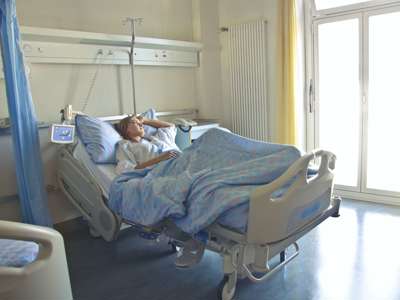
Patient Safety Incident Response Framework replaces Serious Incident Framework
Now that Autumn is upon us, the time has come for the NHS to move over to the new Patient Safety Incident Response Framework. Medical negligence partner Kirsten Wall considers this new approach.
Posted on 22 November 2023
It has for many years been a requirement for the NHS to carry out investigations into serious patient safety incidents under the Serious Incident Framework (SIF). As part of that process, Trusts are required to produce reports (known as Serious Incident Investigation Reports) identifying the root cause of such incidents. The hope was that this would lead to lessons being learned and consequently a reduction in harm to patients.
However, in July 2019 it was announced that SIF would be replaced by the Patient Safety Incident Response Framework (PSIRF). NHS England said the new framework represents “a significant shift in the way the NHS responds to patient safety incidents, increasing focus on understanding how incidents happen”.
Its key aims are:
- Compassionate engagement and involvement of those affected by patient safety incidents
- Application of a system-based approach to learning; considered and proportionate responses to incidents
- Supportive oversight
The hope is that this new system will address long-standing concerns about the way patient safety incidents were dealt with under SIF, including poor quality investigations, limited engagement with patients and a fear amongst staff of the repercussions of their involvement.
Which patient safety incidents will now lead to a full investigation under PSIRF?
Under the old framework, if an incident led to a patient suffering an unexpected or avoidable injury which resulted in serious harm or death, a full investigation would be carried out. Incidents such as abuse or ‘never events’ (entirely preventable serious incidents, such as a foreign object being left in a patient following surgery) also required full investigations.
The new framework lowers that threshold. It no longer has to be a ‘serious incident’ for an investigation to be launched but just where there has been a ‘patient safety incident’. This potentially broadens the scope of cases being reviewed but does allow providers more discretion about which incidents to investigate.
The new approach places an emphasis on proportionality and an acknowledgement of the finite resources available for responding to patient safety incidents.
This new flexibility could allow clinicians to direct resources to the cases where the most learning and improvement and patient safety can be obtained. The flip side to this is, of course, with greater flexibility comes the risk that some areas where an investigation could prove beneficial will be missed.
Impact of the new framework on patients
Patient involvement:
One of the PSIRF’s main aims is the greater involvement of patients and families who have been impacted by patient safety incidents. Under the PSIRF guidance, if a full investigation is carried out, then these individuals should be involved in the investigation process from start to finish, with an increased focus on listening to their experiences and encouraging open and honest discussion about their concerns.
This is a welcome improvement, following heavy criticism of the old system where individuals often felt excluded from the process and, in some cases, were not notified that an investigation was being carried out at all.
Is the new framework going to work better for patients and their families?
There can be no doubt that improvements to the old framework are necessary for patients who have suffered harm or families of those who died as a result of substandard medical care. I have rarely, if ever, spoken to a client who has felt their concerns were fully addressed by a Serious Incident Investigation
What could be a very welcome change brought in by the PSIRF is that issues can be addressed before they result in a patient suffering serious harm, something everyone must agree would be the ideal.
It is very early days in the new world of the PSIRP. Only time will tell whether the decisions NHS organisations make about which cases and issues require an investigation will meet with approval from patients and their families. I think for now we will just have to wait and see!




